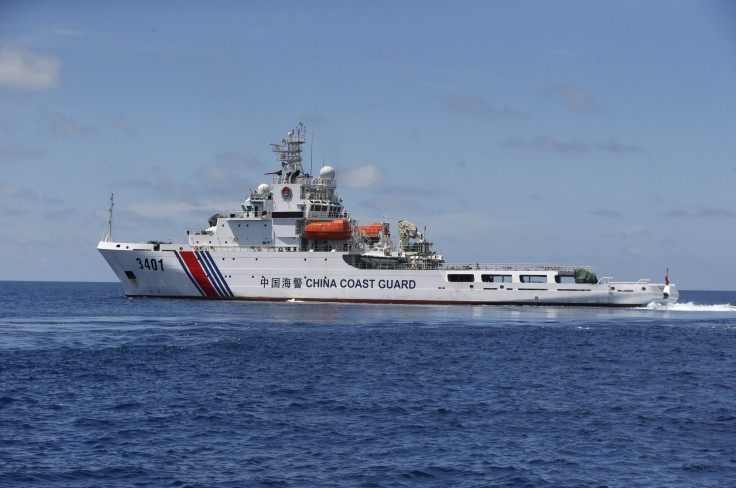South China Sea Standoff: Indonesia Copies China Playbook, Mobilizes Fishermen

Indonesia, Southeast Asia’s largest country and the world’s fourth most populous, will organize fishermen in a joint effort with the country’s warships to help defend against Chinese vessels in the South China Sea, the government said on Monday.
The action would seem to be an imitation of China’s strategy at the onset of the current standoff last month where a Chinese coastguard vessel accompanied Chinese fishing vessels to the disputed Natuna Islands. That event has soured the generally friendly relationship between Jakarta and Beijing.
Chinese fishing boats clashing with Indonesian vessels off the Islands are a common sight but the presence of the armed Chinese coastguard vessel (typical 130 ton Type 218 patrol boats carry twin 14.5mm machine guns) is seen by Jakarta as an escalation that prompted the Indonesian government to summon the Chinese ambassador.
The potential standoff with China could result in tension levels between the two countries not seen since 2016, when Indonesia intercepted a Chinese fishing boat that was illegally fishing in its exclusive economic zone (EEZ). The seized vessel was being towed to an Indonesian port when a Chinese coastguard vessel rammed it in a successful attempt to release it. The Indonesians did not try to recapture the boat.
Indonesian President Joko Widodo did not mince words when he told reporters: “There is no negotiation when it comes to our sovereignty.”
Reporters were also told by Indonesia’s chief security minister, Mahfud MD, that around 120 fishermen from the island of Java would be sent to the Natuna islands, some 1,000km (600 miles) to the north. He said, “We want to mobilize our fishermen from the north coast and maybe in turn from other areas to operate by fishing there and other things.”
Like other disputes with the Philippines, Vietnam and Malaysia, the issue revolves around China’s stubbornness with its sovereignty claims in the South China Sea. Southeast Asian countries plus the United States and much of the world say the claims have no legal basis. This is exemplified by the 2016 UN Permanent Court of Arbitration (PAC) ruling that favored the Philippines EEZ over China’s Nine-Dash line that engulfs the bulk of the entire sea.
Imam Hidayat, the head of Indonesia’s Maritime Security Agency’s sea operations sub-directorate, told Reuters that four more ships would join the six already in the disputed area rich with oil and gas resources in addition to its being an important international trade route and fishing zone.
© Copyright IBTimes 2024. All rights reserved.





















